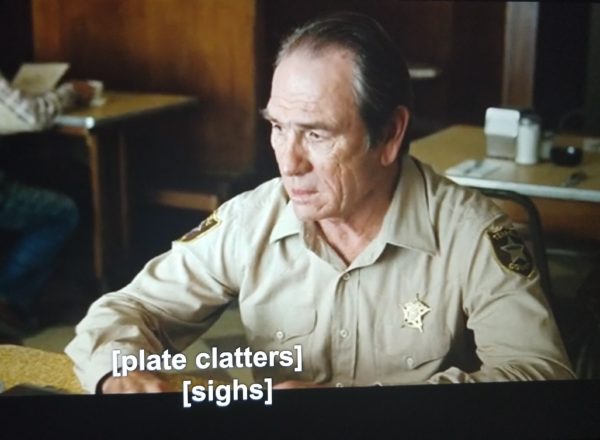Here’s a summary I wrote for this week’s radio show that I thought I’d post here.
This week we are seeing a historic meeting on clergy sex abuse, including some Worcester participants; expanded rights for victims of abuse; financial difficulties in the Diocese of Worcester; and even some relevant anecdotes from my own life as a faithful Catholic.
February 21-24 Pope Francis has convened a meeting of the world’s Roman Catholic bishops at the Vatican on “The Protection of Minors in the Church” and clergy sex abuse worldwide.
In a letter to the U.S. bishops the pope wrote:
We know that, given the seriousness of the situation, no response or approach seems adequate; nonetheless, we as pastors must have the ability, and above all the wisdom, to speak a word born of heartfelt, prayerful and collective listening to the Word of God and to the pain of our people.
Not only bishops will be present at the Vatican, of course, but all sorts of interested parties, including a delegation from one of the Catholic communities I’m a part of, the Catholic Worker movement. One of these women is my good friend Claire Schaeffer-Duffy. In an email they write:
…we are inspired by Dorothy Day who traveled to Rome during the Second Vatican Council to fast and pray for the Church to recognize conscientious objection. In that spirit a delegation of seven Catholic Worker women from the US will travel to Rome for the conference in February. We anticipate our time in Rome will include daily prayer, a daily public presence and participation in some of the events planned by survivors and their advocates. We also hope to address the need for church reform – an end to clericalism, equality for women in ministry, justice for survivors and church transparency.
…Catholic Workers going to Rome are Mary Beth Appel, Maria Bergh, Johanna Berrigan, Alice McGary, Mary Ryder, Claire Schaeffer-Duffy and Kim Williams.
One thing we’ve talked about on the “508” show is that as we enter a “post-Catholic” America, we will see a decline in foot-dragging by those in power when it comes to holding the Church to account. And so we see the Associated Press report “NY gives sex abuse victims more time to sue, press charges“:
New York Gov. Andrew Cuomo signed into law Thursday long-sought legislation that gives the victims of childhood sexual abuse more time to seek criminal charges or file lawsuits against their abusers….
The new law erases what was one of the nation’s most restrictive statutes of limitations when it comes to molestation. Victims now have until age 55 to file civil lawsuits and seek criminal charges until age 28, as opposed to 23 under the old statute.
Several other states have recently enacted similar laws to expand time frames for victims’ lawsuits. Massachusetts gives victims up to 35 years to sue. Ohio and Pennsylvania both now give victims until age 30.
Related: “Roman Catholic Diocese of Worcester reports operating deficit for fiscal 2018.”
I know how to read financial statements just enough to be dangerous. In 2018 [PDF], the diocese took in $28.1 million, and spent $29.6 million, for a deficit of $1.14 million, or about 5%. Including $600,000 in unrealized investment gains, this brings the operating deficit down to 3.4%. For 2017 [PDF] there was by contrast a 4% surplus. As a point of comparison, looking at 2008 (the oldest statement I can find) shows a deficit of something like 9% on a $29.7 million budget. No so much different from 2018.
My parish, St. Peter’s [PDF], had operating receipts of $544,000, and operating disbursements of $490,000, for an increase in operating cash of $54,000. I would likewise caution against “rooting for the parishes but against the bishops,” as their finances are deeply connected.
I’ve often remarked on the show that my life as a Catholic has included zero clergy abuse, zero rumors of clergy abuse, and almost no contact with men later revealed to be abusers. My teenage diocese of Wheeling-Charleston WV has recently released [PDF] a list of credibly-accused priests, and number five on that list is the now-ex-priest James Joseph Chetock, who was pastor of St. Margaret Mary’s in Parkersburg for a year while I was away at college. I never had a lot of interaction with him, but if I’d had to say what parish I was a member of at that time, it would have been that parish. I periodically check online lists of accused clergy waiting for another shoe to drop.
In non-news, last week I heard a terrible homily by a priest I respect a lot. The homily included a sweet anecdote about Cardinal Law. You can argue about whether to call Cardinal Law a monster, and you can argue if he was American Catholicism’s greatest enemy or just in the top five. But you can’t just tell a sweet story about him without acknowledging this context. A good man like this priest, saying “Cardinal Law” with relaxed smile on his face rather than at least a wince, it got me thinking. Is it possible for someone from that generation of priests, formed as a Catholic under a hierarchy that demanded you look the other way, to ever get over that instinct? Or will the reflex always be to think of Law as a “prince of the church” rather than a “destroyer of lives and the faith”? This would explain why, a generation after the abuse scandal exploded, our clergy continue to do a terrible job dealing with this issue. I cannot express how much I love this older generation of priests, how much support they have given me in life, how much I have learned from them and how much more I hope to learn. But if there’s a silver lining to their passing, maybe it’s the empowerment of a younger (and much smaller) generation of clergy for whom “massive corruption” is the sort of thing you confront rather than sweep under the rug.


